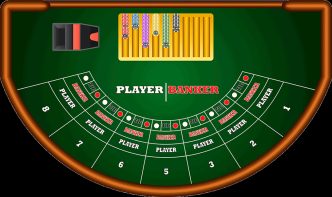Highlight
- Gambling behavior involves risking something of value on an event with an uncertain outcome, driven by the hope of winning additional value.
- Identifying symptoms such as preoccupation with gambling, chasing losses, and unsuccessful attempts to stop is crucial in maintaining control over gambling habits.
- Setting strict time and money limits, seeking support from trusted individuals, and engaging in alternative activities can effectively help manage and reduce gambling impulses.
Meta Title
How to keep Gambling under control
Meta Description
Gambling involves risking value for uncertain outcomes. Recognizing preoccupation, chasing losses, and failed attempts to stop is key to maintaining control.
Permalink
How to keep Gambling under control
Struggling to keep gambling under control? 🎲💡
Gambling can be fun when done responsibly, but it’s easy to lose track of time, money, and priorities. Understanding your gambling habits, recognizing warning signs like chasing losses or neglecting responsibilities, and setting boundaries can make all the difference.
🌟 Key Tips to Stay in Control:
- Set strict time and money limits.
- Avoid gambling to cope with stress or boredom.
- Take regular breaks to regain perspective.
- Seek support from trusted friends or professionals.
📚 Learn more about maintaining a healthy balance and enjoying gambling responsibly.
Tips to Keep Gambling Under Control 🎲
Struggling to manage your gambling habits? Discover practical strategies to set limits, avoid chasing losses, and maintain a healthy balance in life. From budgeting tips to recognizing emotional triggers, this guide has everything you need for responsible gambling. 🌟 #GamblingTips #ResponsibleGambling #LifeBalance
Struggling to keep gambling under control? 🎲 Set time & money limits, avoid chasing losses, and seek support. Stay balanced and enjoy responsibly! #GamblingAwareness #ResponsibleGambling #LifeTips
How to keep Gambling under control
Gambling can be an exciting and entertaining activity when approached responsibly. However, for many, it can become more than just a pastime, affecting personal finances, relationships, and emotional well-being. Keeping gambling under control requires a conscious effort to understand your habits and make mindful choices. Whether you’re a casual player or someone looking to establish healthier boundaries, this guide will provide you with practical strategies to manage gambling responsibly and maintain balance in your life.
Understanding Gambling Behavior
Understanding gambling behavior is key to keeping it under control. Gambling is often driven by a combination of excitement, the allure of winning, and the social aspects of the activity. For some, it serves as a form of escape from stress or emotional challenges. Recognizing the triggers that lead you to gamble—whether it’s boredom, financial pressures, or a need for distraction—can help you make conscious choices. By understanding why you gamble and how it impacts your emotions and decisions, you can better manage your habits and prevent them from spiraling out of control. It’s about being aware of your patterns and taking proactive steps to maintain balance.
Signs You Might Need to Regain Control
Gambling can be a fun and exciting activity when approached with care, but sometimes it can begin to consume more of your time, money, and energy than you realize. It’s important to identify the signs that gambling might be taking a toll on your life before it leads to more significant problems. These signs can often appear subtly at first, but over time, they may become harder to ignore. Recognizing them early gives you the opportunity to take control and create healthier habits. Here’s a closer look at the red flags that could indicate it’s time to reassess your gambling behavior:
- Spending more money than intended: You find yourself betting larger amounts than planned or using money meant for essentials like rent, groceries, or bills. This can lead to financial stress and the inability to meet your everyday needs.
- Neglecting responsibilities: Gambling starts to interfere with important areas of your life, such as missing work deadlines, skipping family events, or falling behind on household chores because you’re focused on gambling.
- Chasing losses: Instead of walking away after losing, you keep gambling with the hope of winning back what you’ve lost. This cycle often leads to even bigger losses, creating more pressure and frustration.
- Feeling guilt or regret: After gambling, you experience overwhelming feelings of shame, embarrassment, or regret about the time or money you’ve spent. These emotions can affect your mental health and overall confidence.
- Borrowing or hiding money: You resort to borrowing from friends, family, or financial institutions to keep gambling or cover debts caused by gambling. You might also hide these financial issues to avoid confrontation or judgment.
- Prioritizing gambling over other activities: Gambling becomes your main focus, causing you to miss out on activities you once enjoyed, such as hobbies, social outings, or quality time with loved ones.
- Experiencing emotional distress: Losing money or not being able to gamble triggers feelings of anxiety, irritability, or frustration. Gambling might start to feel more like a source of stress rather than enjoyment.
Strategies to Keep Gambling Under Control
Gambling responsibly requires conscious effort and practical strategies to ensure it doesn’t take over your life. Whether you gamble occasionally or frequently, adopting the right habits can help you maintain control, avoid financial strain, and preserve your overall well-being. Here are some proven strategies to keep your gambling in check:
- Set a strict budget
Before you gamble, determine the exact amount of money you’re comfortable losing and treat it as an entertainment expense. This ensures you don’t spend money that’s meant for necessities like bills, savings, or family obligations. Stick to this budget no matter what happens—whether you’re on a winning streak or experiencing losses. - Limit your time
Time can slip away quickly when you’re gambling. To avoid this, decide in advance how much time you’ll dedicate to gambling and set a timer if necessary. When the time is up, stop gambling, even if you feel tempted to continue. This prevents excessive involvement and helps you keep gambling as just one part of your day. - Avoid chasing losses
Chasing losses occurs when you continue gambling to recover money you’ve already lost. This often leads to even bigger financial problems as emotions take over rational decision-making. Accept losses as part of the experience and walk away when your budget is spent. The key is to view gambling as a game, not a means to recoup losses. - Gamble for fun, not profit
Gambling should be about entertainment, not a way to make money. Believing you can beat the odds or win consistently can create unrealistic expectations and lead to disappointment. Instead, focus on enjoying the experience, and don’t depend on gambling to improve your financial situation. - Take regular breaks
Gambling for long periods can lead to fatigue and impaired decision-making. Taking breaks allows you to step back, evaluate your progress, and regain perspective. Whether it’s a short walk or a moment to relax, breaks help prevent emotional or impulsive betting. - Keep gambling separate from your finances
Use a designated account or set aside cash exclusively for gambling. This approach ensures that you don’t unintentionally use money meant for important expenses. Avoid credit cards or borrowing money to gamble, as this can quickly lead to financial trouble. - Know your triggers
Understanding what motivates you to gamble can help you develop healthier habits. If stress, boredom, or emotional distress leads you to gamble, find alternative outlets like exercising, spending time with friends, or pursuing hobbies. Addressing the root cause can significantly reduce your reliance on gambling. - Avoid gambling under the influence
Substances like alcohol or drugs impair judgment and increase the likelihood of making risky decisions. When gambling under the influence, it’s easy to lose track of time, overspend, or chase losses. Always ensure you’re in a clear and focused state of mind before gambling. - Seek support
Talking to someone you trust can make a big difference in managing your gambling habits. Whether it’s a family member, friend, or support group, sharing your experiences can provide accountability, encouragement, and helpful advice. Professional counseling is also a valuable resource if gambling feels overwhelming. - Educate yourself
Understanding the odds, risks, and mechanics of gambling can help you make informed decisions. For example, knowing that the house always has an edge can keep you grounded and realistic about your chances. Education is a powerful tool in avoiding common pitfalls and maintaining control.
Common Mistakes to Avoid While Managing Gambling
Managing gambling effectively requires mindfulness and commitment, but even with the best intentions, people often make mistakes that undermine their efforts. Recognizing these common pitfalls can help you avoid setbacks and stay on track with your goals. Here are some mistakes to watch out for and how to steer clear of them:
- Failing to set clear limits
One of the most frequent mistakes is diving into gambling without a plan. Without predefined boundaries for your spending or the time you dedicate to gambling, it’s easy to overextend yourself. A lack of limits can quickly lead to financial trouble or excessive time spent gambling, leaving little room for other important aspects of your life. Setting firm and realistic boundaries is the first step toward maintaining control. - Ignoring emotional triggers
Emotions often play a significant role in gambling behavior. Many people gamble to cope with stress, loneliness, or boredom. However, ignoring these emotional triggers can lead to impulsive decisions and harmful patterns. Recognizing what drives you to gamble and addressing those feelings in healthier ways—like exercise, hobbies, or therapy—can help you avoid letting emotions dictate your gambling habits. - Trying to quit without a plan
Deciding to cut back or quit gambling is a commendable goal, but without a structured approach, it’s challenging to sustain progress. A lack of clear steps, such as setting smaller milestones or finding alternative activities, can make it easier to slip back into old habits. Developing a detailed plan ensures you stay focused and accountable as you work toward managing your gambling. - Chasing losses
A common but dangerous mistake is trying to recover losses by gambling more. This often leads to larger losses as frustration and desperation cloud judgment. Chasing losses creates a vicious cycle where you risk more than you can afford, ultimately worsening the situation. Accepting losses as part of gambling and knowing when to stop is crucial to staying in control. - Keeping gambling a secret
Many people feel embarrassed or ashamed about their gambling and choose to hide it from friends and family. This secrecy can lead to isolation, guilt, and a lack of accountability. Open communication with trusted loved ones provides support and perspective, making it easier to manage your habits effectively. - Using gambling as a coping mechanism
Turning to gambling as a way to escape stress, financial problems, or emotional pain can worsen these issues. Instead of solving the underlying problems, gambling may create new ones. Identifying healthier outlets, such as counseling, exercise, or creative activities, helps you tackle challenges without relying on gambling as a crutch. - Borrowing money to gamble
Using borrowed money to fund gambling is a risky choice that often leads to debt and strained relationships. When you gamble with money you don’t have, the pressure to win increases, often resulting in more losses. Sticking to a budget and never borrowing to gamble ensures you don’t put your financial stability at risk. - Neglecting self-care
Focusing too much on gambling while ignoring your mental, physical, and emotional health can make it harder to regain control. Overlooking self-care activities like proper sleep, exercise, and social interactions may leave you feeling depleted and less equipped to manage your gambling habits. Prioritizing your overall well-being is essential for maintaining balance. - Not seeking help when needed
Trying to manage gambling issues entirely on your own can be overwhelming, yet many people hesitate to seek help due to stigma or pride. Professional counselors, support groups, and helplines are valuable resources that provide guidance and encouragement. Reaching out for help is a sign of strength and a key step toward long-term success. - Overestimating your ability to control gambling
Overconfidence in your ability to manage gambling can lead to risky behavior. Some people believe they can stop anytime, only to find themselves caught in patterns they struggle to break. Acknowledging the risks of gambling and staying vigilant about your habits helps you make smarter choices and avoid overconfidence pitfalls.
Why is gambling awareness important?
Gambling awareness is crucial because it helps individuals make informed and responsible choices, reducing the risk of negative consequences. By understanding the potential pitfalls of gambling, you can set healthy limits, recognize warning signs of problematic behavior, and take steps to maintain control. Awareness also promotes a supportive environment, encouraging people to seek help if needed and approach gambling as a fun, manageable activity. Here are some key reasons why gambling awareness is important:
- Prevents financial issues
Gambling can quickly lead to financial problems if not managed responsibly. Awareness encourages you to set clear budgets and stick to them, ensuring you only gamble with money you can afford to lose. This proactive approach protects your savings and helps you avoid falling into debt. By understanding the risks of overspending, you’re better equipped to keep your finances intact. - Encourages responsible behavior
Gambling awareness fosters a sense of responsibility by promoting healthy boundaries. It reminds you to limit the time and money you dedicate to gambling, ensuring it doesn’t dominate your life. Responsible behavior helps you balance gambling with other priorities, keeping it as a fun and controlled activity. - Identifies early warning signs
Awareness allows you to recognize signs that gambling might be becoming problematic, such as chasing losses, hiding gambling from loved ones, or feeling stress about your gambling habits. Identifying these warning signs early gives you the chance to take corrective action before the behavior escalates into a serious issue. - Reduces emotional stress
Losses are a natural part of gambling, but without awareness, they can lead to frustration, guilt, or anxiety. Being mindful of the emotional aspects of gambling helps you develop healthier coping mechanisms and reduces the negative impact on your mental health. This awareness keeps gambling as an enjoyable activity rather than a source of stress. - Supports balanced living
Gambling awareness ensures that your hobbies and responsibilities remain balanced. By understanding the importance of moderation, you can prevent gambling from overshadowing other important areas of your life, such as work, family, and personal growth. Maintaining this balance allows you to enjoy gambling without sacrificing what truly matters. - Breaks the stigma
Raising awareness helps normalize conversations about gambling and its challenges. Many people struggle in silence due to fear of judgment, but awareness fosters a supportive environment where individuals feel safe to seek help. Breaking the stigma allows for more open discussions, making recovery and responsible gambling more accessible. - Promotes informed decisions
Awareness empowers you to make smarter choices by understanding the odds and risks involved in gambling. Knowing that the house always has an edge, for example, helps you approach gambling with realistic expectations, reducing impulsive or overly optimistic decisions.
When to Seek Professional Help
Knowing when to seek professional help for gambling is essential to prevent the issue from escalating and affecting your overall well-being. If gambling begins to interfere with your finances, relationships, work, or mental health, it’s a clear sign that external support may be necessary. Frequent feelings of guilt, anxiety, or frustration related to gambling are also red flags that shouldn’t be ignored. Additionally, if you find yourself unable to stop gambling despite wanting to, or if you’re borrowing money to fund your gambling, it’s time to reach out. Professional help can provide you with tailored strategies, coping mechanisms, and emotional support to regain control and address the underlying factors driving your gambling behavior. Seeking help isn’t a sign of failure—it’s a powerful step toward restoring balance and reclaiming your life.
Conclusion
Keeping gambling under control is about striking the right balance between enjoyment and responsibility. By understanding your gambling behavior, recognizing warning signs, and adopting practical strategies, you can ensure that gambling remains a positive and manageable part of your life. Awareness and proactive steps, such as setting limits and seeking help when needed, empower you to avoid common pitfalls and maintain control. Remember, it’s never too late to make changes that benefit your well-being. Whether it’s about creating boundaries, addressing emotional triggers, or reaching out for support, every step you take brings you closer to a healthier and more balanced approach to gambling.
- Info-graphics
Gambling behavior involves risking something of value on an event with an uncertain outcome, driven by the hope of winning additional value. Identifying symptoms such as preoccupation with gambling, chasing losses, and unsuccessful attempts to stop is crucial in maintaining control over gambling habits.
Strategies to Keep Gambling Under Control
- Set a strict budget – Decide on a spending limit and stick to it.
- Limit your time – Allocate specific time for gambling and stop when it’s over.
- Avoid chasing losses – Accept losses and avoid gambling to recover them.
- Gamble for fun, not profit – Treat gambling as entertainment, not a source of income.
- Take regular breaks – Pause often to stay focused and avoid fatigue.
- Keep gambling separate from finances – Use only designated funds for gambling.
- Know your triggers – Identify and address emotional or situational triggers.
- Avoid gambling under the influence – Stay sober to make clear decisions.
- Seek support – Talk to trusted people or professionals for help.
- Educate yourself – Learn the odds and risks to make informed choices.
- Info-graphics
Common Mistakes to Avoid While Managing Gambling
- Failing to set clear limits – Gambling without defined boundaries leads to loss of control.
- Ignoring emotional triggers – Overlooking emotions can result in impulsive gambling.
- Trying to quit without a plan – Lack of a structured approach makes quitting harder.
- Chasing losses – Attempting to recover losses often leads to bigger financial trouble.
- Keeping gambling a secret – Hiding gambling habits isolates you and reduces accountability.
- Using gambling as a coping mechanism – Relying on gambling to escape problems worsens them.
- Borrowing money to gamble – Gambling with borrowed money risks debt and financial instability.
- Neglecting self-care – Ignoring health and well-being hampers your ability to manage gambling.
- Not seeking help when needed – Avoiding help prolongs struggles and limits recovery.
- Overestimating your ability to control gambling – Overconfidence can lead to risky behavior.
- Info-graphics
Why Gambling Awareness is Important
- Prevents financial issues – Helps set budgets to avoid debt and protect finances.
- Encourages responsible behavior – Promotes limits to keep gambling fun and controlled.
- Identifies early warning signs – Helps detect and address problem gambling behaviors.
- Reduces emotional stress – Minimizes guilt and anxiety by fostering healthy coping mechanisms.
- Supports balanced living – Ensures gambling doesn’t overshadow life’s priorities.
- Breaks the stigma – Encourages open discussions and access to support.
- Promotes informed decisions – Empowers smarter choices with realistic expectations.







